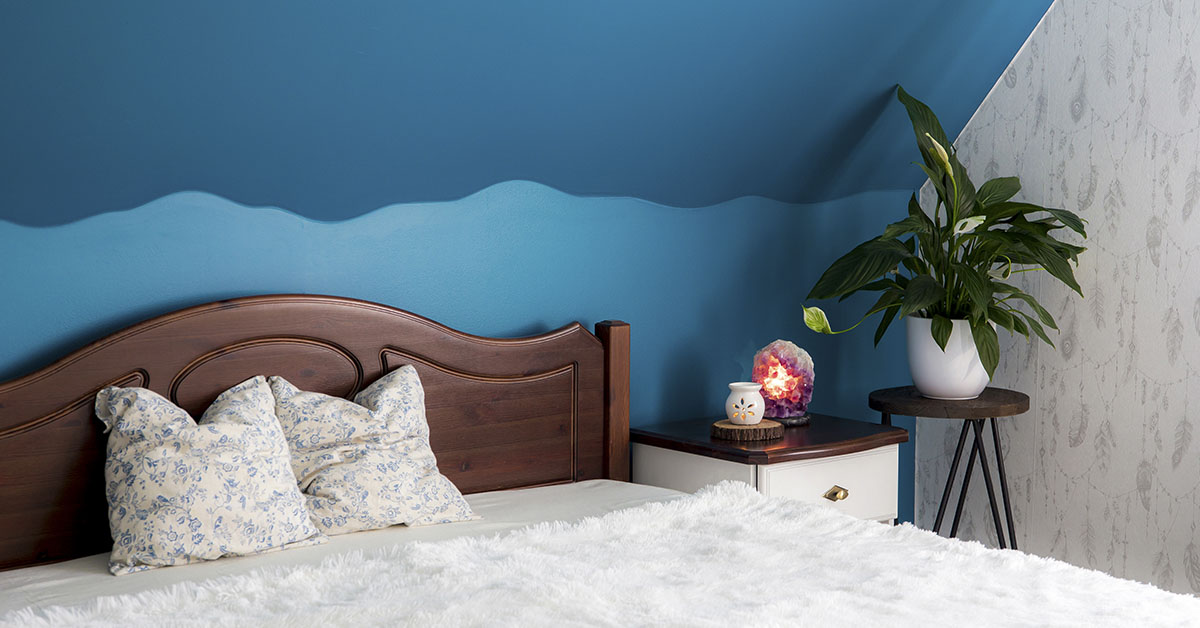Is feng shui real or just superstition? Science shows that some practices actually work, though not always for the reasons tradition claims. This ancient Chinese system aims to improve health by arranging spaces to guide energy flow. Critics call it a myth, but research keeps finding real effects behind certain ideas. The bedroom offers a good testing ground because sleep quality shows clear results. Traditional teachers have specific rules about bed placement, claiming these choices affect health. Some recommendations match what modern sleep science says. Others come from cultural beliefs. Looking at each placement rule shows which ones actually improve sleep and why they work.
Does Sleep Direction Matter?

Traditional teachings say pointing the head north disrupts natural energy flow and causes restless sleep. Practitioners compare the body to a compass that works best when facing south with Earth’s magnetic field. Amin Hekmatmanesh, a biomedical engineer specializing in brain signals and sleep, studied 21 volunteers during short naps and found they slept longer with different brain wave patterns when positioned north to south rather than east to west. In a separate study, Sabine Begall observed cattle and deer consistently aligning their bodies north-south while grazing and resting. Together, these findings suggest a possible link between orientation and biological rhythms, though the evidence remains too limited for firm conclusions.
The “Coffin Position” Concern
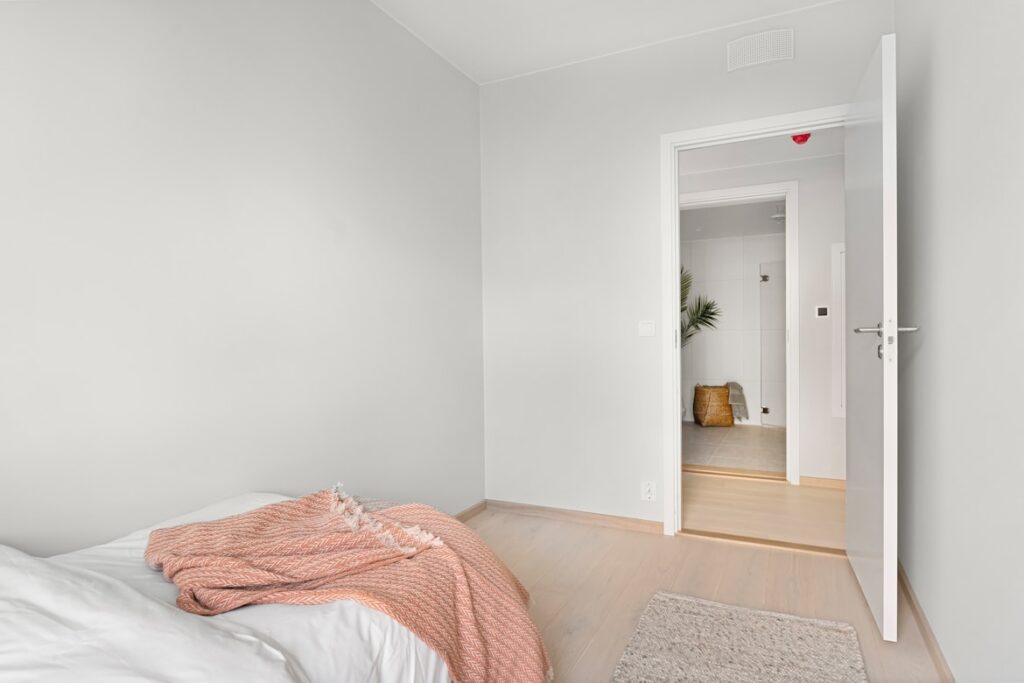
Pointing the feet directly toward the bedroom door is known as the coffin position, named for its resemblance to how the deceased are carried from a room. In traditional Chinese households, the belief runs deep, and sleeping this way can cause real anxiety. Vastu shastra holds a similar view, linking body position to well-being. For many, the worry itself becomes the problem. Stress over this alignment can disrupt sleep through psychological strain, showing how cultural beliefs can shape physical responses.
Finding the Bed’s Best Spot
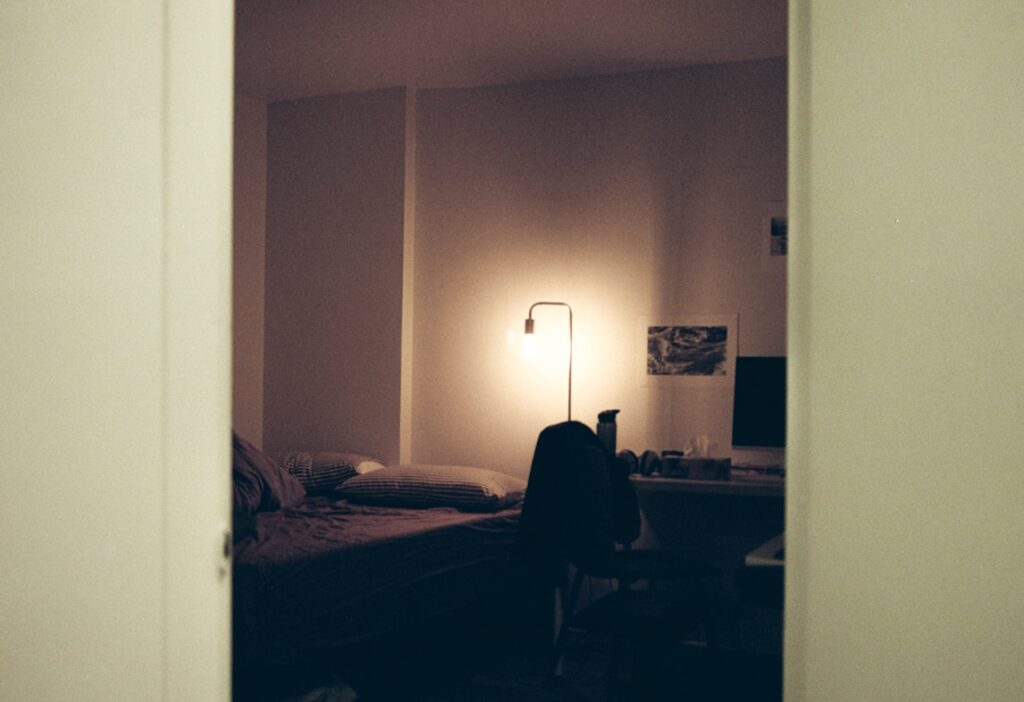
Sleep researchers proved that an old feng shui rule actually works, just not for the reasons people thought. The ancient practice puts beds at an angle across from doorways, supposedly to channel good energy. Modern studies show the real benefit is much simpler. When you can see the door but avoid facing it directly, you stay away from hallway noise and light while keeping an eye on who might come in. This makes people feel safer and sleep better. The old masters got the right answer using the wrong explanation.
Why a Wall Beats a Window
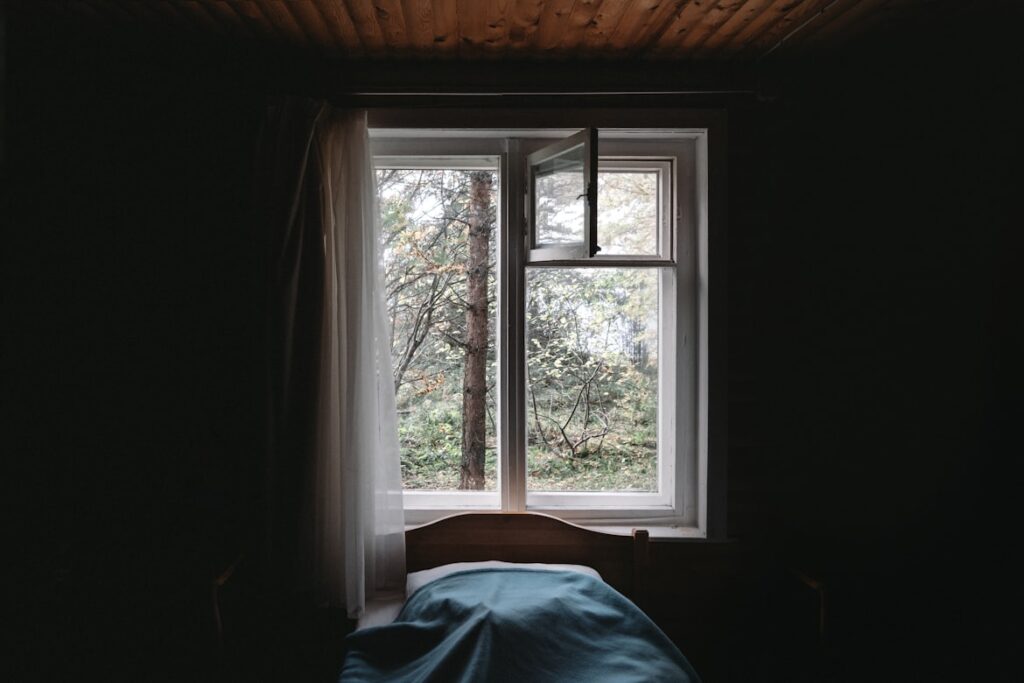
Placing a bed directly under a window can cause temperature changes, street noise, and unwanted light in the bedroom. Practitioners avoid this for energy flow reasons, while science points to practical concerns. Morning sunlight can disturb natural sleep cycles, traffic noise travels easily through glass, and drafts create uncomfortable shifts in temperature during the night. Sleep specialists often recommend positioning beds against solid walls for a more stable environment. In this case, traditional advice aligns with modern sleep research, though the explanations differ.
Screens and Sleepless Nights
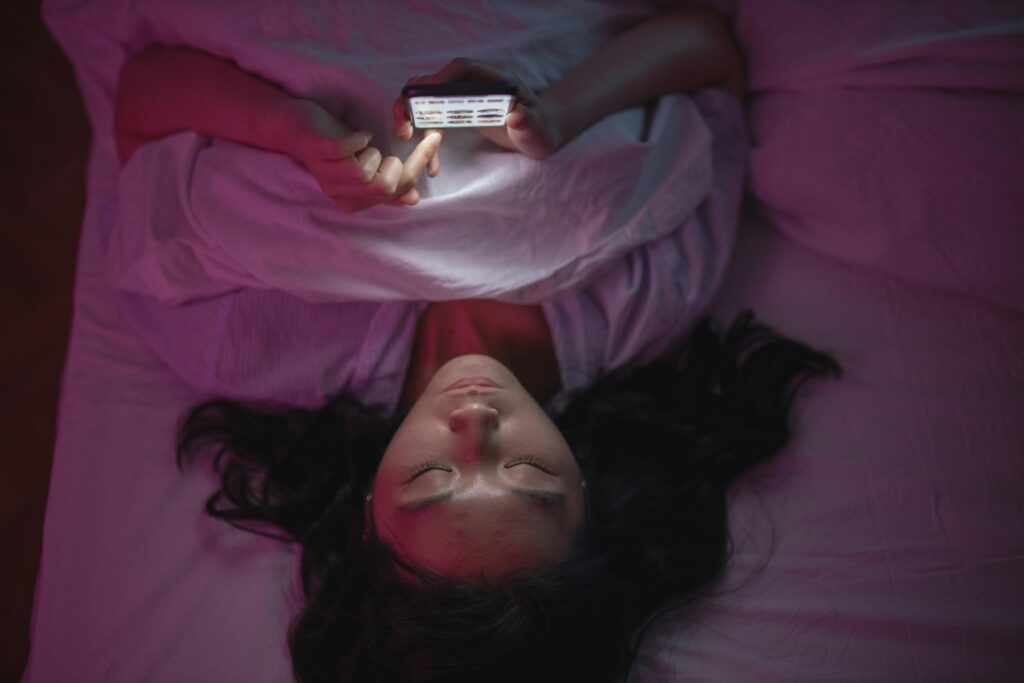
Keeping electronics out of the bedroom is a feng shui rule modern sleep medicine also supports, though for reasons unrelated to energy flow. Phones and TVs emit blue light that suppresses melatonin, the hormone that regulates sleep cycles. Evening screen use keeps the brain alert when it should be winding down, which makes it harder to fall asleep. The mental stimulation from social media or shows adds to the problem. Sleep researcher Irish found that removing electronics from bedrooms improves sleep quality, making this one of the most effective rules.
Mirrors and Midnight Disruptions
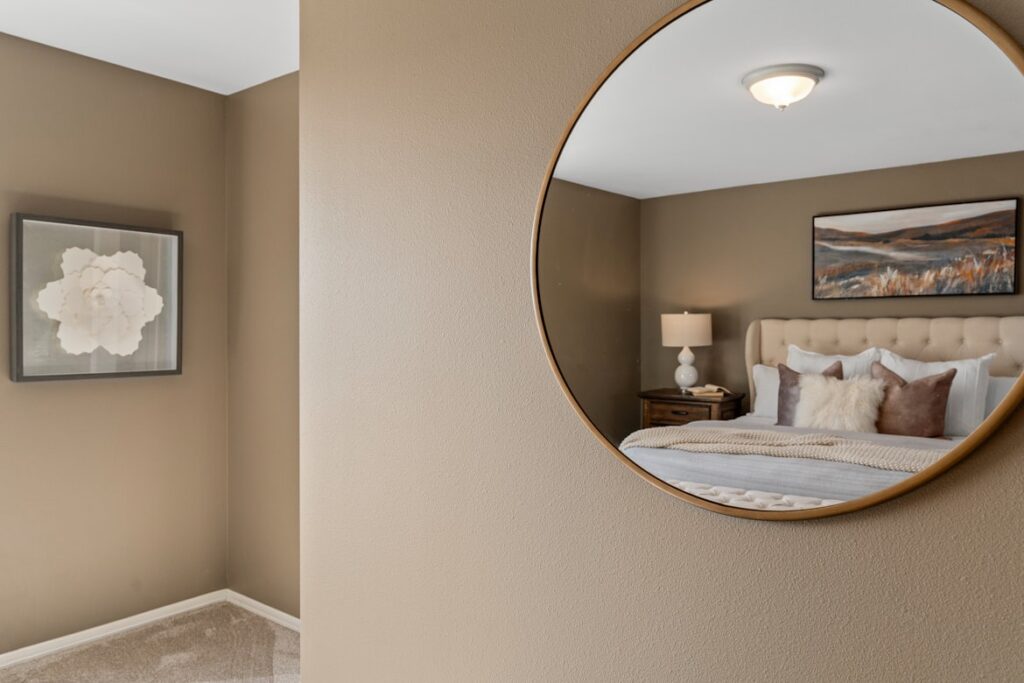
Traditional practitioners worry about energy amplification from reflective surfaces during sleep hours. Science finds no evidence for energy theories, but practical concerns make this rule surprisingly useful. Mirrors reflect light around bedrooms, creating visual disturbances that disrupt sleep. Many people report feeling psychologically unsettled when catching glimpses of their reflection during nighttime awakenings. The startle response from unexpected movement in side vision can hurt sleep quality. Simple physics explains why this ancient recommendation actually improves bedroom environments.
Read More: 25 Spiritually Toxic Habits Hiding in Your Daily Routine
Mess, Stress, and Rest
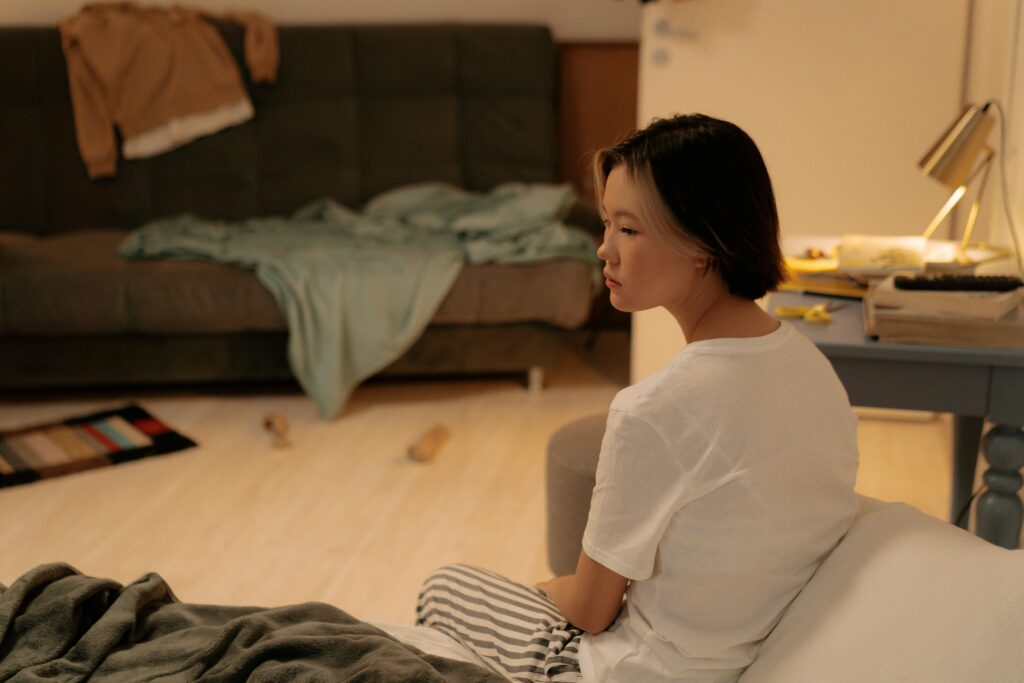
Organized spaces genuinely improve sleep quality, though not through chi optimization as feng shui suggests. Psychology research shows that visual clutter increases stress hormones, making mental relaxation much harder to achieve. Cluttered bedrooms create low-level anxiety that interferes with the calm mindset needed for restful sleep. Behavioral scientists Williams and Bargh proved that observing distance between objects improves emotional state, providing scientific backing for this ancient recommendation. Clean, organized sleeping spaces consistently link to better sleep in scientific studies. The ancient practice works beautifully with contemporary stress research.
Where Science Stands Now
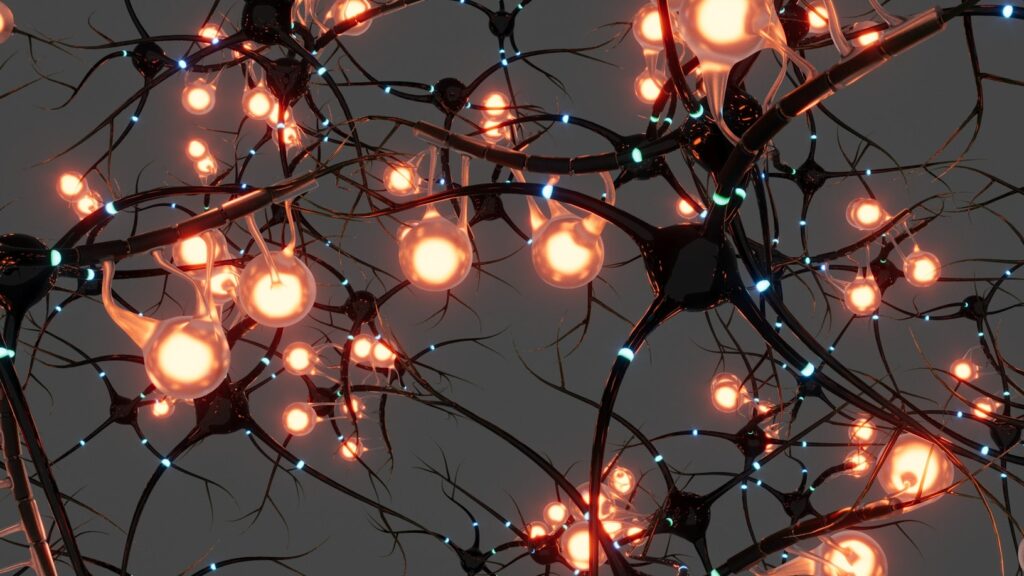
Scientists have found that humans might sense Earth’s magnetic field through blue light hitting the eyes. This discovery gives possible biological support to feng shui’s directional rules, which have been followed for centuries. Sleep studies show slight changes in brain activity and sleep quality depending on the direction a person sleeps. The evidence is still limited, but it suggests there may be biological effects that science is just starting to understand. Most sleep research still focuses on proven factors like temperature and light. But studies on magnetic fields are pushing into new territory, where ancient ideas and modern science start to overlap.
Blending Tradition with Science
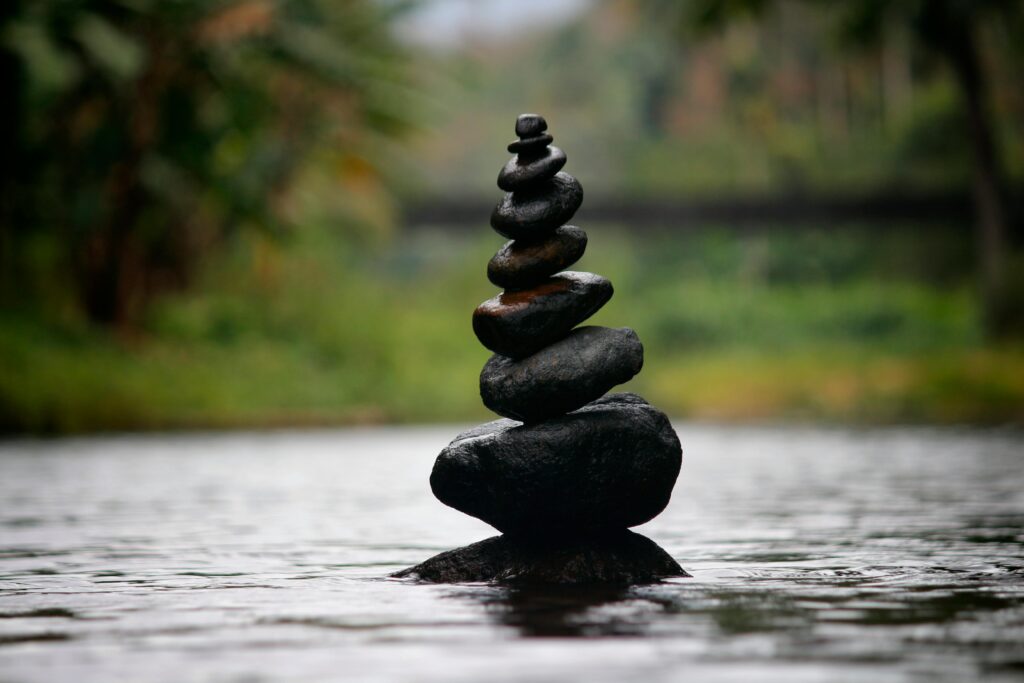
Looking at feng shui through a scientific lens makes the real-versus-myth debate less clear-cut. A lot of bedroom advice actually lines up with basic physics and psychology. Avoiding windows helps reduce noise and temperature swings. Keeping the bed away from the door cuts down on disruptions. Removing electronics gets rid of sleep-disrupting blue light. Clearing clutter can lower stress. Even some animal studies hint that mammals might react to magnetic fields in ways science doesn’t fully understand yet. So while some ideas have a solid foundation, others are more cultural than scientific. Whether it’s real or not really depends on which practice you’re talking about.
Read More: Where to Position a Jade Plant for Good Feng Shui
